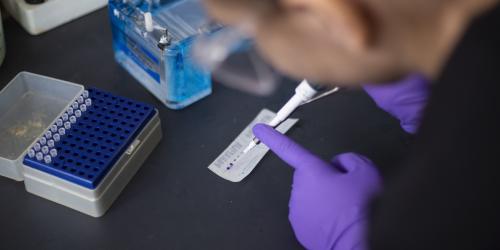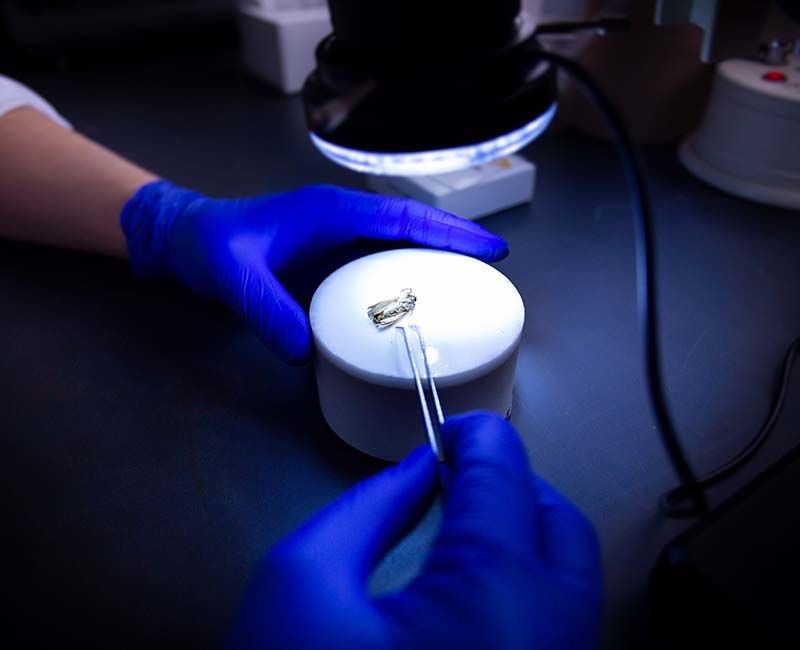
Biology (Ph.D.)
Prepare for a career in research or academia through a combination of extensive research and coursework to earn a Ph.D. in biology at Illinois Tech.
Illinois Tech's Ph.D. program in biology is tailored to fit your background and goals. Programs of study may be designed in any of the three areas of concentration: biochemistry, cell and molecular biology, or microbiology. The department has state-of-the-art computer and laboratory equipment in which to conduct research in these areas.
In addition, the department constructs and operates facilities for X-ray scattering and imaging at the Advanced Photon Source at Argonne National Laboratory. The department offers graduate programs leading to Ph.D. degrees in biology, concentrating educational and research activities in the areas of biochemistry, bioinformatics, cell and molecular biology, and microbiology. Graduate education in biology is available on either a full- or a part-time basis.
Program Overview
The Ph.D. program is tailored to fit your background and goals. The department has state-of-the-art computer and laboratory equipment in which to conduct research, including X-ray scattering and imaging at the Advanced Photon Source at Argonne National Laboratory.
Career Opportunities
A career with a Ph.D. in biology will depend on the concentration of study.
- Microbiologist
- Environmental scientist
- Medical scientist
- Natural sciences manager
- Postsecondary biology teacher
Completion of an M.S. degree is not normally required for admission to the full-time Ph.D. degree program, but may be required of part-time students.
You must pass the Ph.D. qualifying examination in your respective area of specialization: biochemistry, cell and molecular biology, or microbiology.
- GRE: 310 (quantitative and verbal), 3.0 (analytical writing)
- GPA: 3.0/4.0
Informing Agricultural Practices Through Computational Genomics
Biology Ph.D. Candidate Dakota Bunn investigates the habits of the western bean cutworm, a pest to corn and dry beans, using computational genomics.
Learn More

